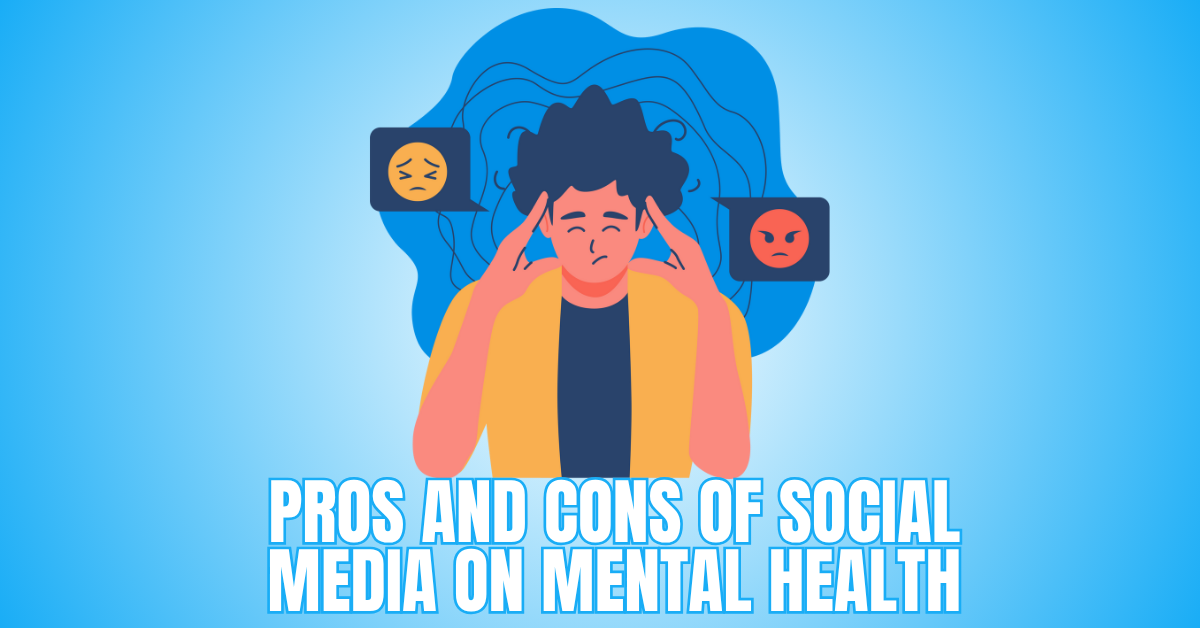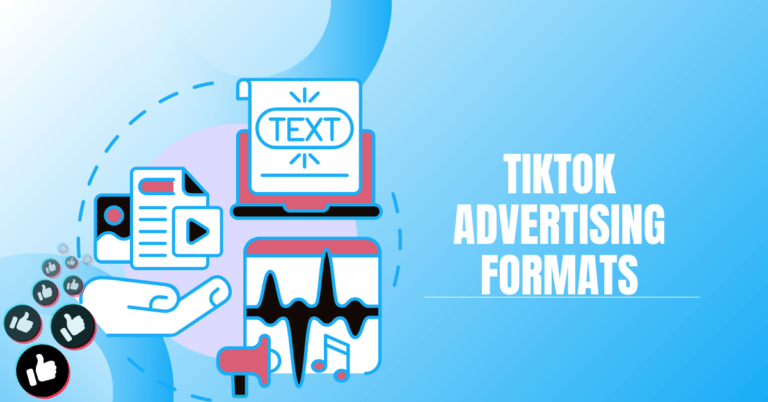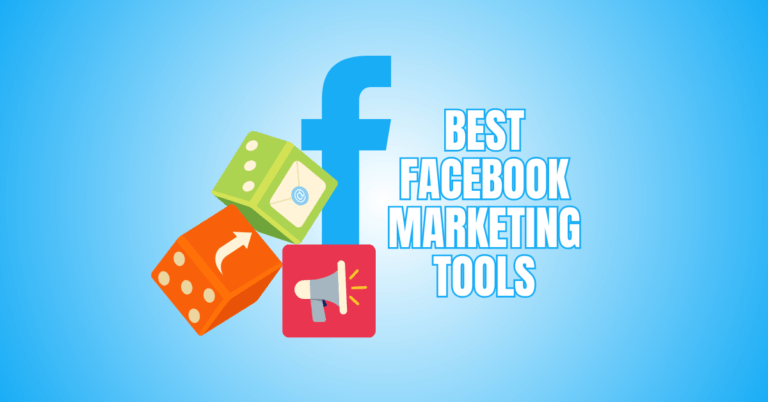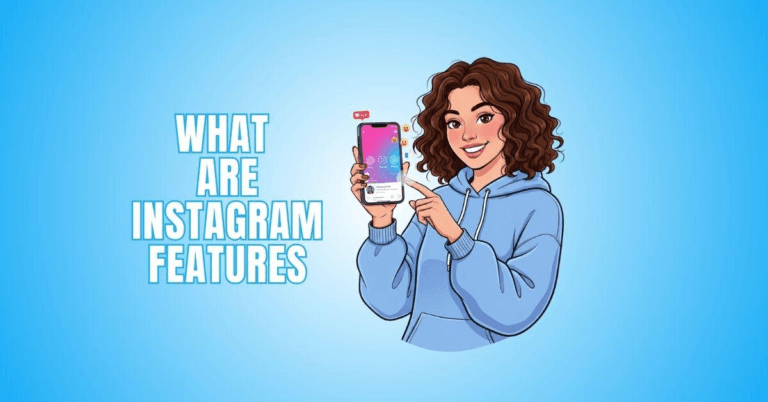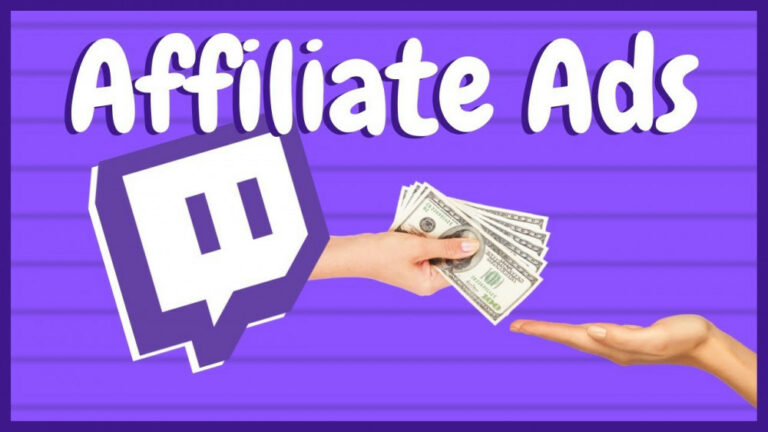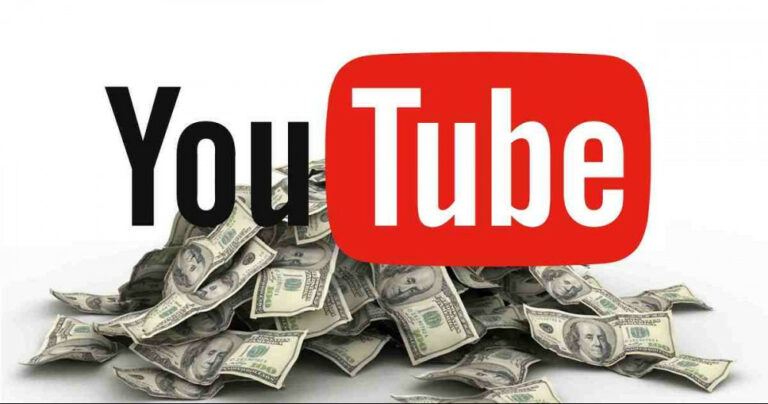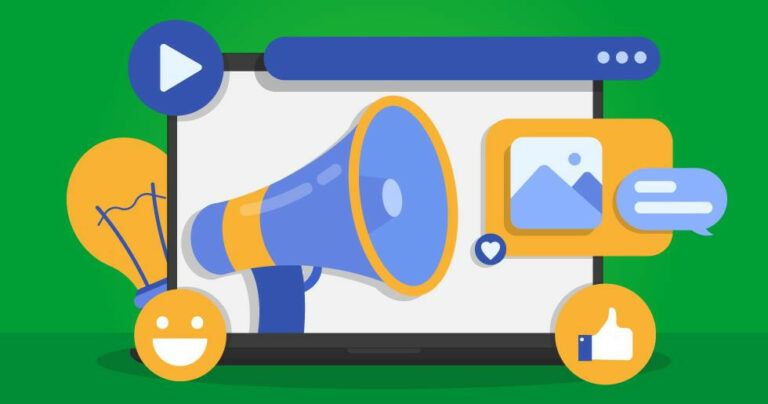Pros And Cons Of Social Media On Mental Health
In the age of digital connectivity, social media has become an integral part of our lives, shaping how we communicate, connect, and consume information.
While it offers numerous benefits, its impact on mental health has become a topic of concern. On the one hand, they provide a powerful avenue for building relationships, staying updated on current events, and even promoting mental health awareness.
But persistent exposure to carefully regulated lifestyles, cyberbullying, and the pressure to meet society's expectations can all harm mental health.
This article analyzes the Pros and cons of social media on mental health and reveals a nuanced relationship between digital connectivity and our emotional well-being.
It will also delve into the pros and cons of social media's influence on mental well-being, exploring how it can enhance and potentially compromise our psychological health.
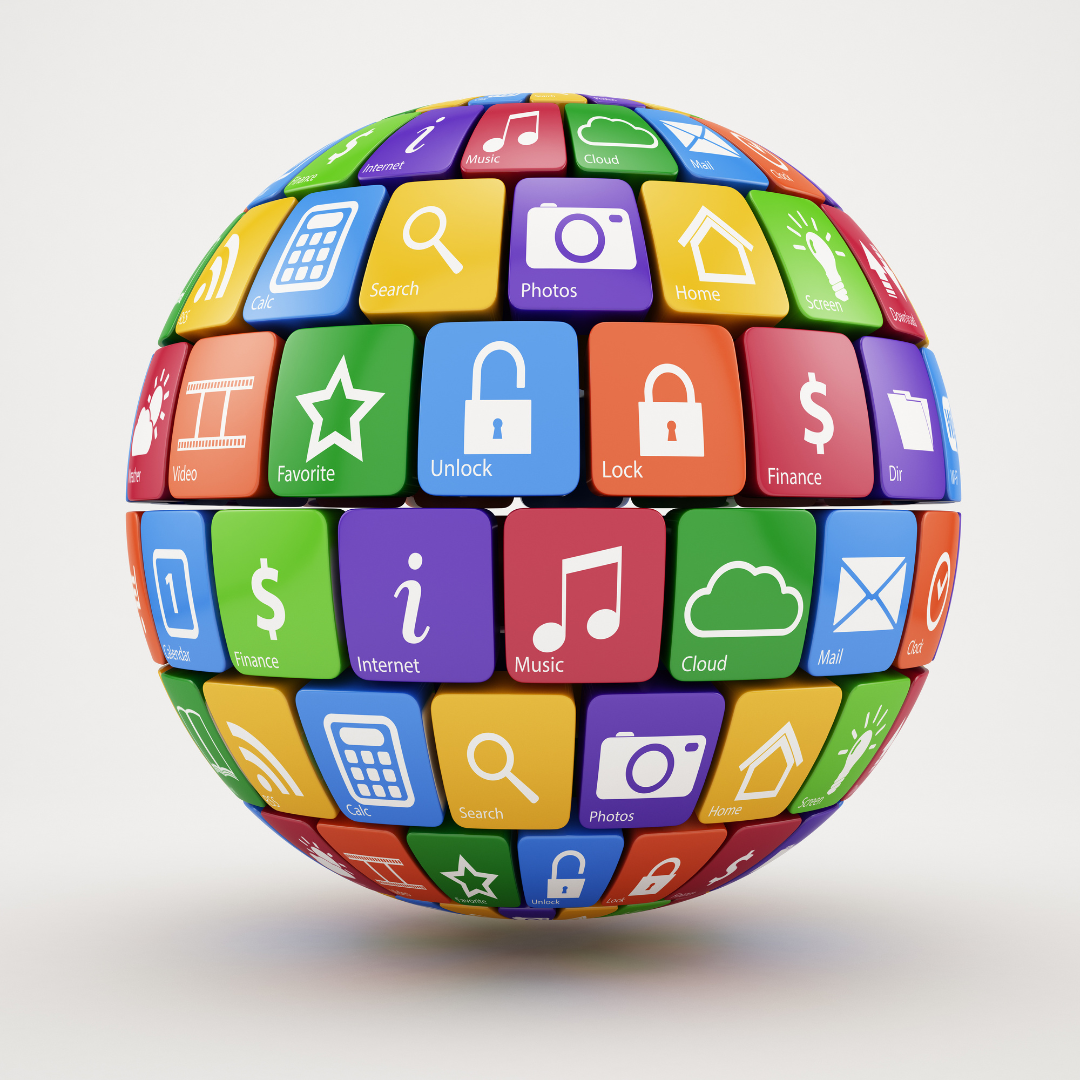
The Pros Of Using Social Media On Mental Health
In today's digital age, the influence of social media on various aspects of our lives is undeniable. From connecting with friends to staying updated on global events, social media platforms have revolutionized how we interact and engage.
Beyond communication, these platforms have also found a place in shaping mental health discussions. While debates about the impacts of social media on mental well-being continue, it's essential to recognize that this virtual landscape offers a range of positive influences.
Here are some potential positive impacts of using social media on mental health:
1. Social Connection
In an era where geographical boundaries often separate loved ones, social media offers a bridge to maintain and foster relationships.
Through platforms like Facebook, Instagram, and Twitter, individuals can stay connected with family, friends, and acquaintances regardless of physical location.
This connectivity is particularly valuable for those who might face challenges in meeting face-to-face due to various reasons, such as distance, work commitments, or health concerns.
By providing a virtual space for interactions, social media helps combat the feelings of loneliness and isolation that can exacerbate mental health issues.
Sharing life updates and photos, and even participating in group chats or video calls, offers a way to keep relationships alive and thriving.
Moreover, engaging with like-minded individuals with similar interests or experiences fosters a sense of belonging and community.
Connecting with others who understand and empathize with personal struggles can significantly improve mental well-being, providing a support network beyond physical boundaries.
The power of social media to unite people and build connections is a testament to its potential to enhance overall mental health by reducing feelings of isolation and loneliness.
2. Information And Awareness
Social media platforms have transformed into significant hubs of information dissemination, making it easier than ever to access resources related to mental health.
From informative articles to personal anecdotes, individuals can find a plethora of content that educates them about various mental health conditions, coping mechanisms, and treatment options.
This access to information has played a pivotal role in raising awareness and reducing the stigma surrounding mental health issues.
People can learn about the different facets of mental well-being, challenge misconceptions, and gain insights into the experiences of those who have faced similar struggles. The vast reach of social media means that awareness campaigns and initiatives can reach a global audience in seconds.
Various organizations, mental health professionals, and influencers use platforms like Twitter and Instagram to share accurate information, debunk myths, and promote open discussions about mental health.
As a result, societal attitudes gradually shift from ignorance and bias to empathy and understanding. The availability of educational resources empowers individuals to seek help for themselves or support others in need, ultimately fostering a more informed and compassionate society.
By leveraging the power of social media, the landscape of mental health awareness has been reshaped, contributing significantly to breaking down the barriers that once surrounded these topics.
3. Supportive Communities
The rise of social media has paved the way for creating numerous online communities and groups dedicated to mental health.
These digital spaces offer individuals a safe and supportive environment to openly discuss their experiences, seek guidance, and connect with others navigating similar challenges.
These communities encompass various mental health topics, from anxiety and depression to self-care and mindfulness.
People who might otherwise feel isolated or unheard in their immediate surroundings can find solace in the virtual camaraderie of these groups.
Members share their personal stories, coping strategies, and triumphs, creating a sense of unity and shared purpose. The power of anonymity on social media platforms allows individuals to share their thoughts and emotions without fear of judgment or discrimination.
This virtual connectivity can be particularly beneficial for those who struggle with face-to-face interactions due to anxiety or other mental health conditions.
Being part of a supportive community can offer a sense of validation and reassurance, normalizing experiences that might otherwise be stigmatized or misunderstood.
Participants often gain valuable insights into various coping mechanisms and treatment options from firsthand accounts, allowing them to explore strategies they might not have considered before.
As people engage in empathetic conversations and provide mutual support, they contribute to a collective effort to destigmatize mental health issues and promote a more compassionate and understanding society.
Wealthy Affiliate – Mini Review (2025)
If you’ve ever thought about turning your blog, passion, or niche into an online business,
Wealthy Affiliate (WA) is one of the most beginner-friendly platforms I’ve used.
It combines step-by-step training, website hosting, SEO research tools,
and an active community all in one place.
What I like most: you can start free (no credit card needed),
explore lessons, test the tools, and connect with other entrepreneurs
before upgrading. WA isn’t a “get rich quick” scheme — it’s a platform where success comes
from consistent effort and applying what you learn.
4. Expression And Creativity
Social media provides individuals with an outlet for creative expression that can positively affect their mental well-being.
Platforms offer various media, from written posts to images and videos, allowing users to share their thoughts, experiences, and artistic creations with a global audience.
Engaging in creative activities has been shown to have therapeutic benefits, helping individuals process their emotions, alleviate stress, and promote self-discovery.
For many, expressing themselves through creative endeavours offers a cathartic release, allowing them to externalize their feelings and gain a deeper understanding of their experiences.
Whether writing personal reflections, sharing visual art, crafting music, or even producing humorous content, these creative acts can provide a sense of accomplishment and validation.
Additionally, the feedback and support received from the online community can boost self-esteem and foster a sense of belonging.
Creating and sharing content can be empowering, offering individuals a way to communicate their inner thoughts and emotions that might otherwise be difficult to articulate. This process can contribute to improved mental clarity and self-awareness.
Engaging in creative activities within a supportive online environment can also help individuals connect with others who share similar interests and experiences.
This shared passion and connection can form the basis for meaningful interactions and relationships, further enhancing their mental well-being.
As individuals freely express their creativity, they contribute to the richness of the online community and experience the therapeutic benefits of embracing their artistic side.
5. Crisis Support
Social media platforms provide immediate crisis support and resources to individuals facing mental health challenges.
Individuals can quickly access information about crisis hotlines, helplines, and mental health resources through social media channels during emergencies or distress.
These platforms enable mental health organizations, advocacy groups, and individuals to share vital information, reach out to those in need, and create a sense of urgency around seeking help.
The real-time nature of social media allows for the swift dissemination of information, making it an invaluable tool for connecting individuals with immediate assistance.
During times of crisis, people may feel isolated or overwhelmed, and social media provides a bridge to connect them with a supportive community that can offer guidance and empathy.
Social media platforms empower individuals to seek help or support others in need by sharing information about available resources, crisis helplines, and mental health professionals.
Moreover, the visibility of such information reduces the stigma surrounding mental health, encouraging open conversations and destigmatizing seeking assistance during crises.
Social media's ability to amplify messages rapidly ensures that critical resources reach a wide audience, potentially making a life-saving difference for struggling people.
By using the platform for crisis support, social media contributes to breaking down barriers and promoting a culture of mental health awareness and assistance, ultimately positively impacting individuals' well-being.
6. Positive Affirmations And Inspiration
Social media platforms have become a haven for positive affirmations and inspirational content that uplift users' spirits and promote mental well-being.
Numerous accounts and pages on these platforms curate and share motivational messages, self-care tips, and stories of resilience. Such content constantly reminds users to prioritize their mental health and practice self-love.
Positive affirmations, quotes, and anecdotes shared on social media can act as a source of encouragement during challenging times, fostering a sense of hope and optimism.
By scrolling through their feeds and coming across these affirming messages, users are exposed to a steady stream of positivity that can counteract negativity and stress.
This content encourages users to adopt healthier coping strategies, seek balance, and embrace self-improvement journeys.
In addition, the interactive nature of social media allows individuals to engage with this content by saving, sharing, or interacting through comments.
The act of sharing such positive messages not only benefits the person posting but also contributes to a collective sense of unity and support within online communities.
As individuals encounter motivational content that resonates with their experiences, they may be inspired to implement positive changes in their daily routines, habits, and mindset.
Ultimately, the prevalence of positive affirmations and inspirational content on social media nurtures a culture of well-being, empowering users to cultivate healthier mental and emotional states while fostering a sense of connection and encouragement within digital spaces.
It's important to approach social media use mindfully and balance the positive aspects and potential challenges. Every individual's experience with social media is unique, and being aware of one's emotional responses to online interactions is key to maintaining a healthy relationship with these platforms.
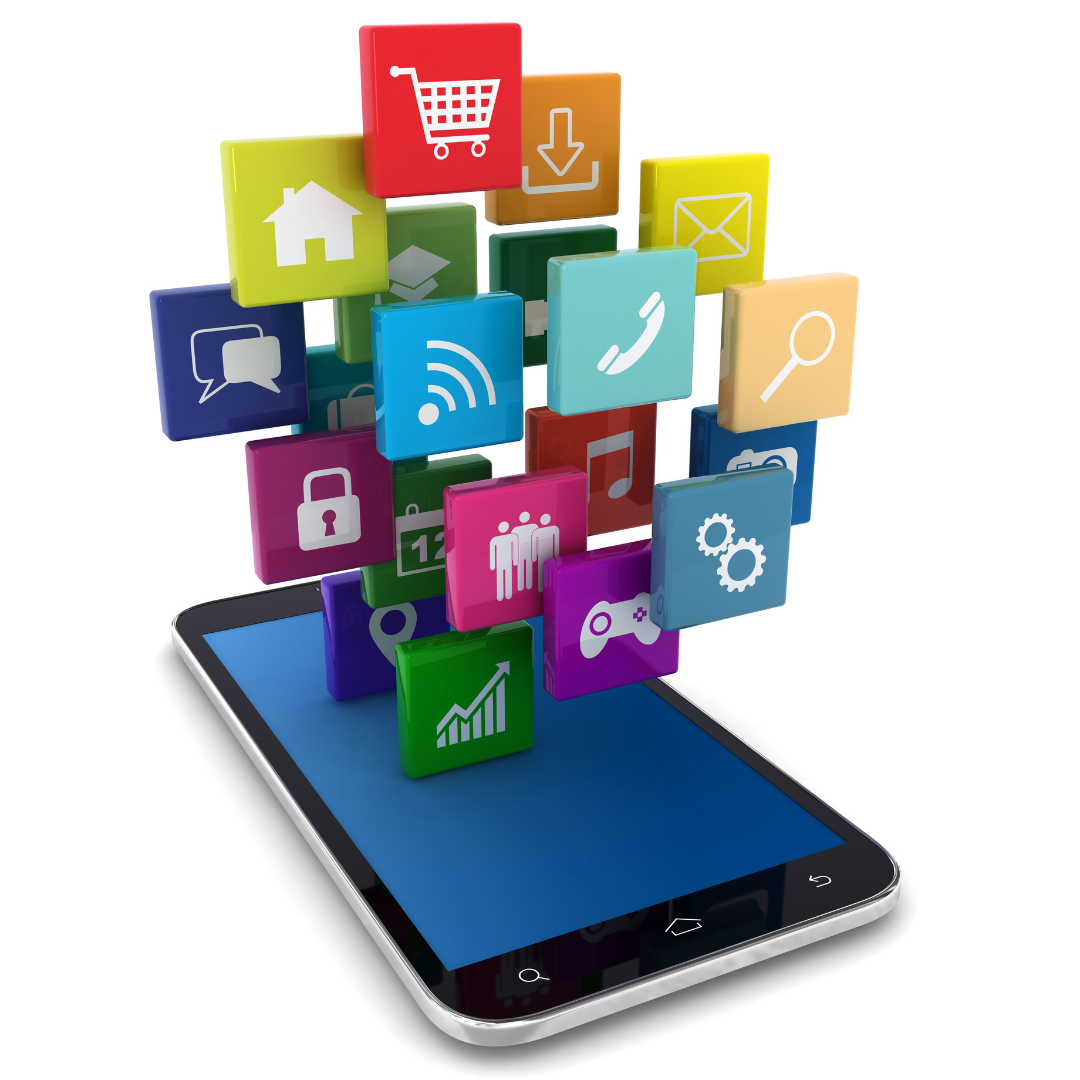
Cons Of Using Social Media On Mental Health
While social media platforms offer numerous benefits, there are potential downsides that can impact mental health. Some of the cons of using social media on mental health include:
1. Comparison And Envy
The problem of comparison and jealousy is among the significant adverse effects of utilizing social media on mental health.
In today's digital age, users are bombarded with meticulously curated and idealized versions of others' lives, often showcasing only the positive aspects.
This can trigger feelings of inadequacy, insecurity, and envy among individuals who may compare their lives to the seemingly perfect lives on social media platforms.
The constant exposure to glamorous vacations, luxurious possessions, and flawless appearances can foster unrealistic expectations and negatively impact self-esteem.
Users may encounter friends and acquaintances sharing their accomplishments, successes, and happy moments as they scroll through their feeds.
This can inadvertently lead to a distorted view of their lives, making them feel like they are falling short in comparison. Such persistent feelings of inadequacy can contribute to low self-esteem, self-doubt, and a negative self-perception.
The pressure to measure up to the standards set by others online can create emotional distress and a sense of dissatisfaction with one's reality.
2. Negative Self-Image
Another significant downside of using social media on mental health is the potential for negative self-image. With the widespread use of filters, photo-editing tools, and carefully posed images, social media often presents an idealized and unrealistic portrayal of beauty and appearance.
This can contribute to body dissatisfaction and promote unhealthy beauty standards, particularly among young users who are more vulnerable to such influences.
As users scroll through their feeds filled with flawless and perfectly curated images, they may begin to internalize these unrealistic standards as the norm.
This constant exposure to idealized appearances can lead to feelings of inadequacy, comparison, and body image issues.
Young individuals, in particular, might be susceptible to developing a distorted self-image as they strive to conform to the ideals of beauty perpetuated on social media.
The pressure to present a picture-perfect image can also lead to a phenomenon known as “selfie culture,” where self-worth is tied to external validation through likes, comments, and shares on photos.
This overemphasis on appearance can divert attention from cultivating meaningful relationships and focusing on personal growth, ultimately impacting self-esteem and overall well-being.
3. Cyberbullying And Harassment
The prevalence of cyberbullying and harassment on social media is a significant concern that can severely affect users' mental health.
The relative anonymity provided by online platforms can encourage individuals to engage in hurtful behaviour, including negative comments, trolling, and hate speech.
Such behaviour can target users directly, resulting in emotional distress, anxiety, and depression. Cyberbullying victims often experience humiliation, shame, and isolation as hurtful content can be shared widely and remain accessible for prolonged periods.
The constant exposure to negative and hateful comments can erode self-esteem, trigger anxiety, and contribute to a sense of powerlessness.
For young users, cyberbullying can be particularly damaging, as it occurs within a space where they often seek social validation and connection.
The toxic environment created by cyberbullying and harassment can make users feel unsafe and unwelcome on social media, affecting their overall well-being. Platforms may implement measures to combat this issue, such as reporting tools and community guidelines.
Still, the prevalence of such harmful behaviour underscores the need for users to cultivate digital resilience, be vigilant about privacy settings, and seek support from trusted individuals or mental health professionals if they experience online harassment.
4. Fear Of Missing Out (FOMO)
Fear of Missing Out (FOMO) is a psychological phenomenon that has become prevalent due to the constant exposure to others' activities and experiences on social media platforms.
Users scroll through their feeds and often see posts showcasing friends' exciting events, parties, vacations, and achievements.
This can trigger anxiety and insecurity as users compare their lives to the seemingly adventurous and fulfilling lives depicted online.
The curated nature of social media content can amplify feelings of inadequacy, as users may believe that their lives are pale compared to the exciting activities they see online.
This fear of missing out on fun and memorable experiences can lead to anxiety, depression, and isolation. Users may feel pressure to constantly stay connected and engaged with social media to feel included.
FOMO can be particularly detrimental to mental health, as it fosters a mindset of constant comparison and anxiety about not measuring up to others' lifestyles.
To mitigate the negative effects of FOMO, users can practice mindful social media consumption, reminding themselves that online representations often do not capture the full reality of individuals' lives.
Finding the balance between online interactions and real-life activities can help individuals maintain a healthier perspective and prioritize their well-being.
5. Distraction And Productivity Loss
Excessive use of social media can significantly impact individuals' productivity and focus. With constant notifications, scrolling feeds, and engagement in online discussions, users often need help with their tasks and responsibilities.
This can decrease academic, professional, or personal efficiency, leading to stress and anxiety due to unfinished work or missed deadlines.
The addictive qualities of social media networks may make the distraction problem worse. The allure of receiving likes, comments, and shares can make it challenging for users to disengage from their devices and concentrate on more important matters.
The constant switching between tasks and social media interactions can disrupt cognitive processes and hinder the ability to maintain sustained attention on complex tasks.
Ultimately, productivity loss due to social media distractions can contribute to a cycle of stress and anxiety. The pressure to catch up on unfinished work, coupled with the frustration of being unable to concentrate, can affect individuals' mental well-being.
To address this issue, individuals can implement strategies such as setting designated social media use times, using website blockers during work hours, and practicing mindfulness to enhance focus and maintain productivity.
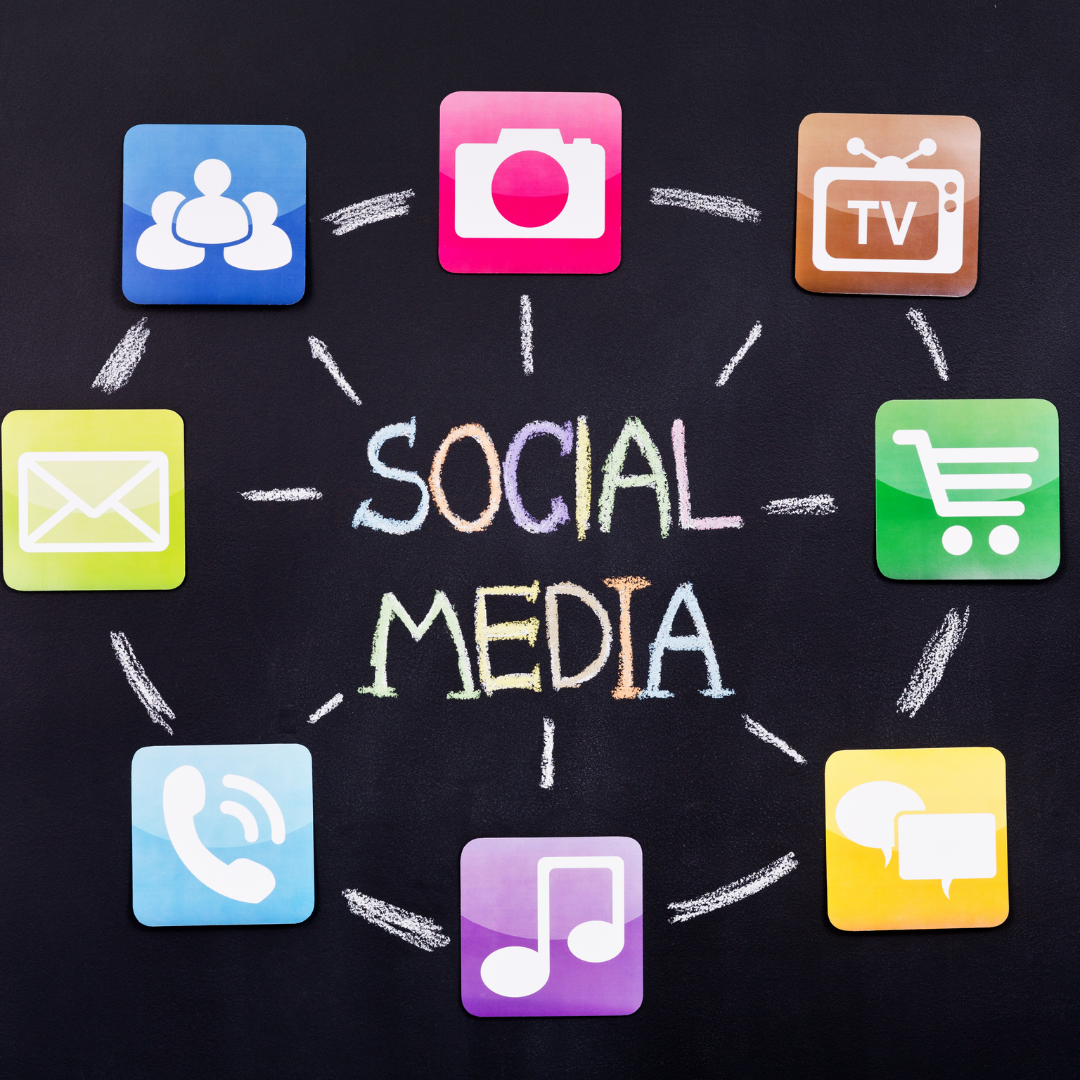
Conclusion
The influence of social media on mental health is a complex interplay of pros and cons. While it gives opportunities for artistic expression and inspiration and promotes social connections, access to knowledge, and support, it also presents challenges such as the potential for comparison, cyberbullying, and the perpetuation of unrealistic standards.
However, the key lies in recognizing the pros and cons of social media on mental health and making informed choices to prioritize one's well-being through self-awareness, moderation, and self-care.
By cultivating a mindful connection with social media, individuals can establish a digital environment that supports their mental health and enhances their overall quality of life.
I trust you enjoyed this article on the Pros and Cons of Social Media on Mental Health. Please stay tuned for more insightful blogs on affiliate marketing, online business, and working from anywhere in the world.
Take care!
— JeannetteZ 🌍✨
💬 Your Opinion Is Important To Me
Do you have thoughts, ideas, or questions? I’d love to hear from you. Please leave your comments below or email me directly at Jeannette@WorkFromAnywhereInTheWorld.com.
📚 More Work From Anywhere Reads
🚀 Ready to Build a Business You Can Run from Home
Or from Anywhere in the World?
Imagine creating income on your terms — from home, a cozy café, or wherever life takes you.
With the right tools, training, and community support, it’s entirely possible.
Start your own online business for free — no credit card needed.
Disclosure
This post may contain affiliate links. As an Amazon Associate and participant in other affiliate programs, I earn from qualifying purchases at no extra cost to you. Please read my full affiliate disclosure.

